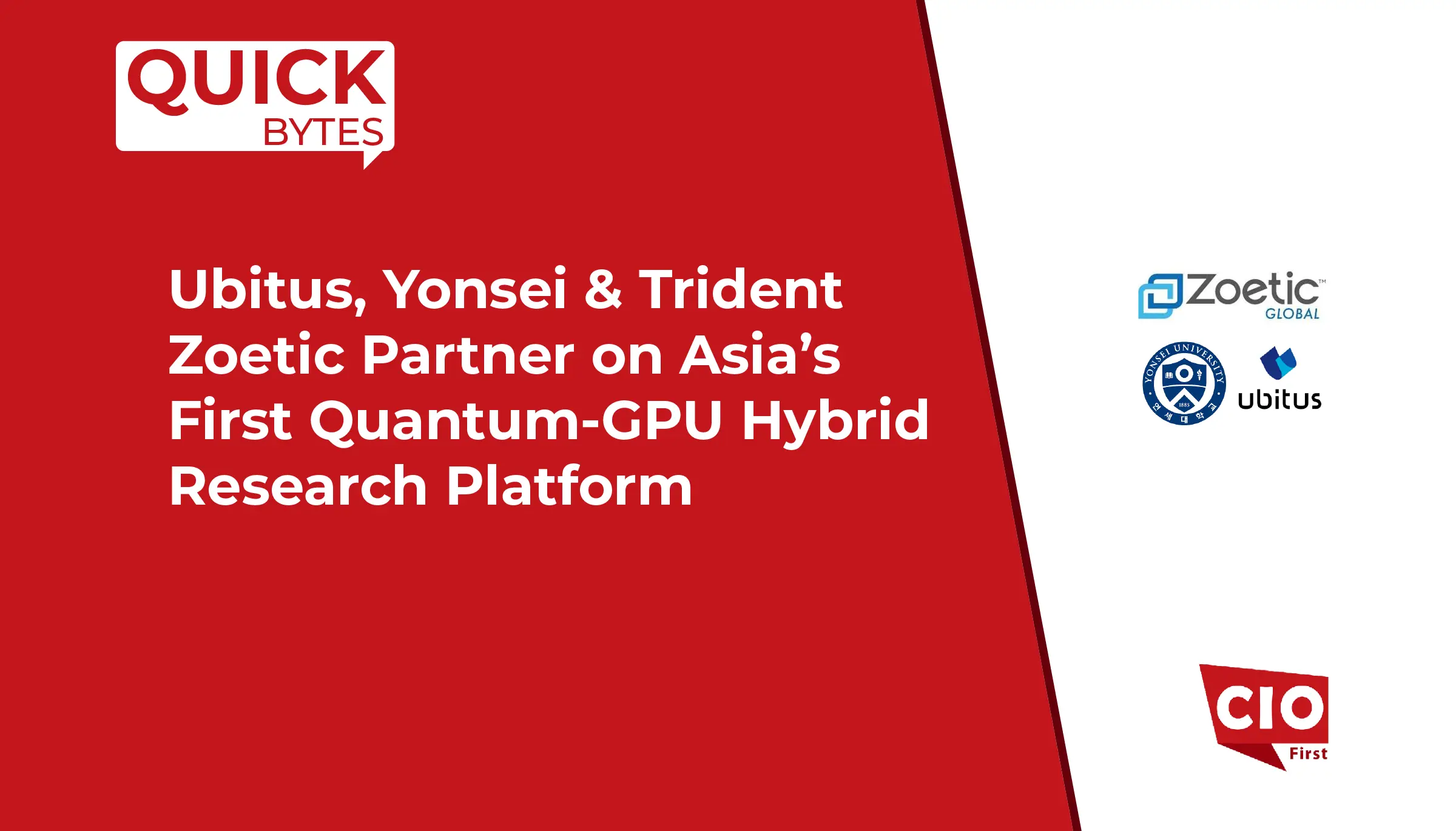Ubitus K.K. has signed an MOU with Yonsei University and Trident Zoetic to co-develop Asia’s first hybrid research platform combining quantum computing and GPU infrastructure. The initiative brings together global tech leaders—including Pasqal (France), D-Wave (Canada), and Ubitus (Japan)—with support from Incheon Metropolitan City and IFEZ. Based at Yonsei’s International Campus, the platform aims to drive scientific breakthroughs in AI, biotech, and materials science by integrating three quantum systems (IBM’s 127-qubit superconducting computer, Pasqal’s neutral atom platform, and D-Wave’s quantum annealing system) with a 512-node, 4,096-GPU NVIDIA B200 cluster provided by Ubitus.
Also Read: Acuvity Releases Open Source Secure MCP Server to Strengthen Safe AI Integration
Operating under a GPU-as-a-Service model, the platform will enable hybrid orchestration between AI and quantum workloads for applications like drug discovery and quantum-enhanced learning. Ubitus will lead deployment, architecture, and ongoing operations. “This partnership reflects our commitment to next-generation infrastructure,” said Wesley Kuo, CEO of Ubitus. “We are proud to support the foundation of a new hybrid computing ecosystem that will drive scientific and industrial innovation across Asia.” The initiative marks a strategic milestone in establishing East Asia as a leader in quantum-AI research and commercialization.


























